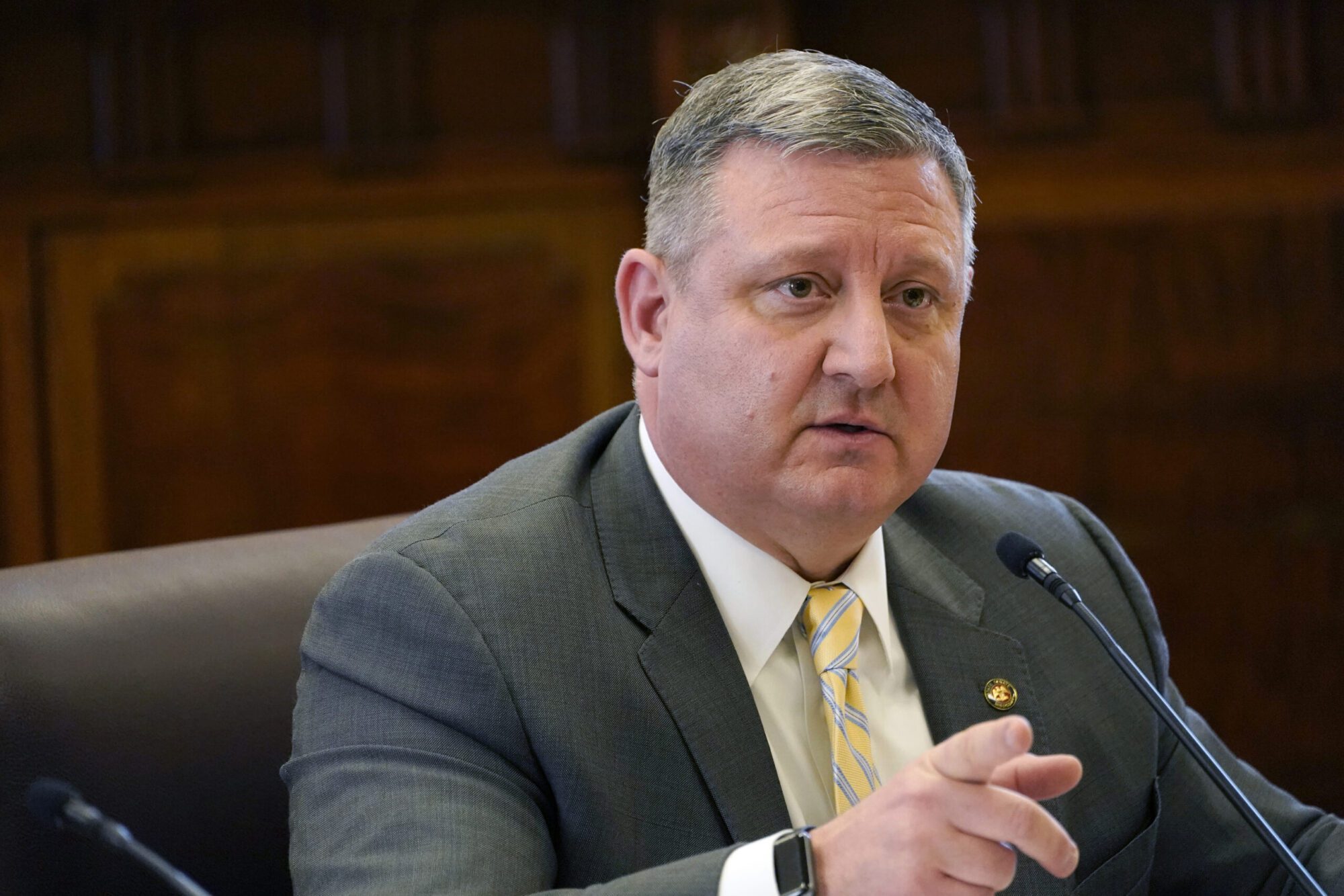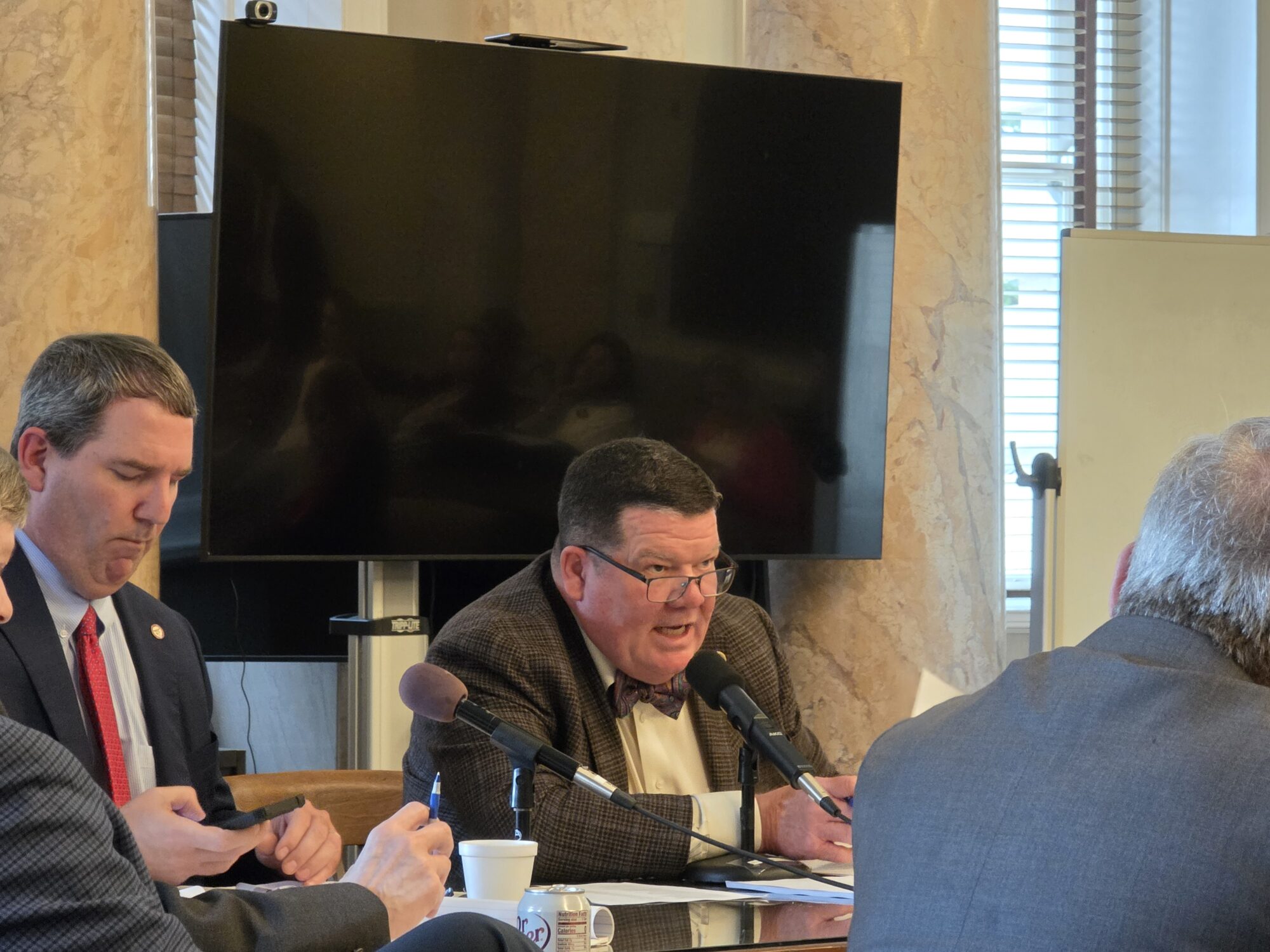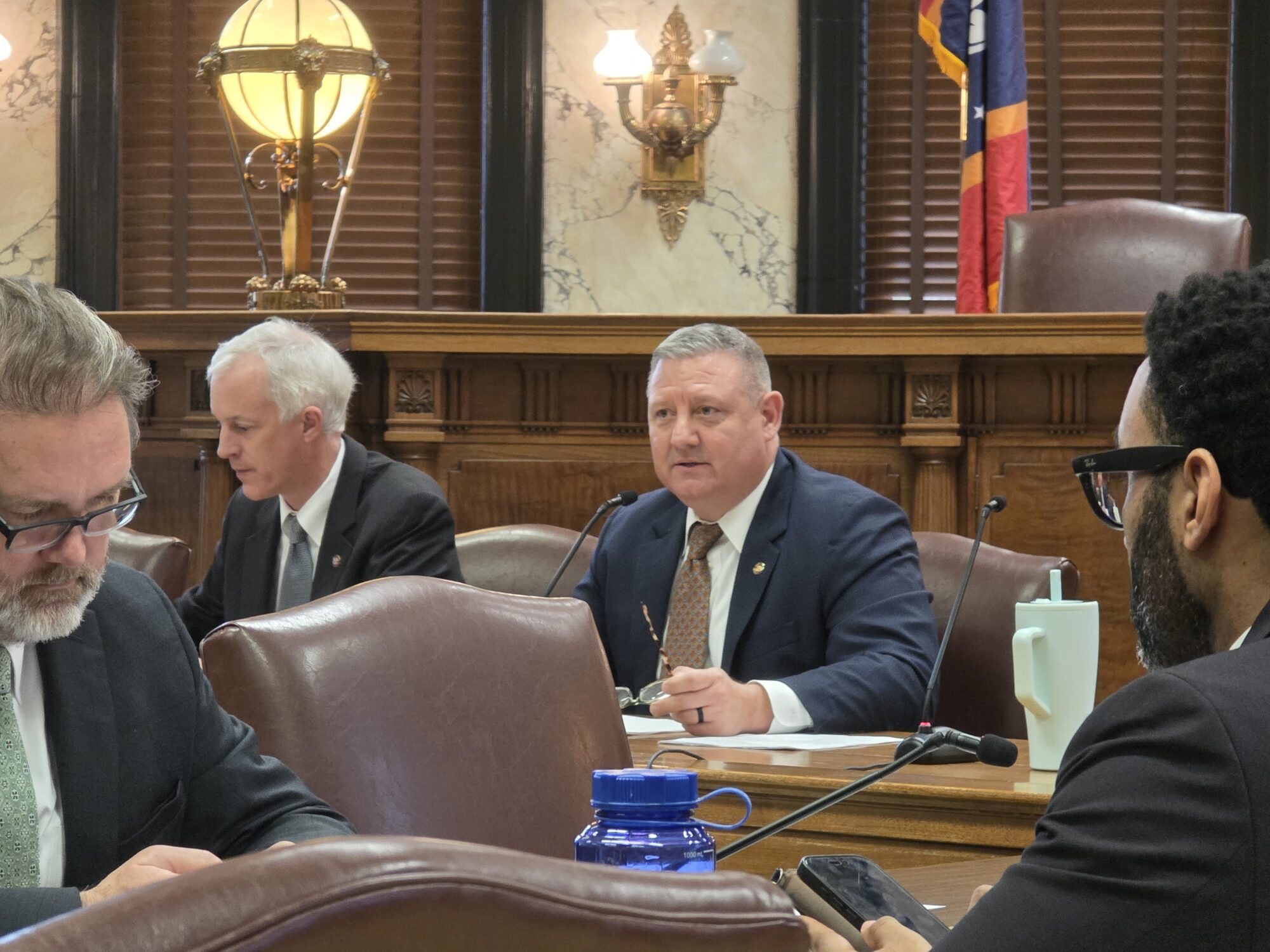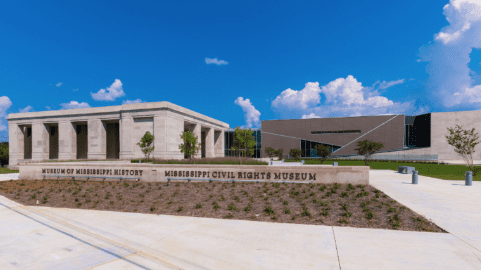
Senate Education Committee Chairman Dennis DeBar Jr., R-Leakesville, Tuesday, March 1, 2022. (AP Photo/Rogelio V. Solis - Copyright 2022 The Associated Press. All rights reserved.)
- Increases related to addressing reading deficiencies and covering rising health insurance costs were among the funds added to Mississippi’s education budget.
The budget for the K-12 public education system in Mississippi has been set, with lawmakers increasing the student funding formula by $16 million over the prior year.
State Senator Dennis DeBar (R), Chairman of the Senate Education Committee, presented HB 42 on the floor of the Senate during this week’s special session. DeBar explained that the bill keeps most appropriation line items at level funding from last year, with some adjustments.
“First off, most everything is level funded. The funding formula was fully funded this year. Actually, it was an increase of about $16 million over last year,” DeBar added.
That additional $16 million to the Mississippi Student Funding Formula, which replaced the Mississippi Adequate Education Program last year, brought the total appropriation for education to $2.9 billion.
“I feel good about the education budget,” DeBar said. “It could be better, but it definitely could be a lot worse, put it that way.”
While the $2.9 billion appropriation to the Mississippi Student Funding Formula is less than the $3 billion projected during last fall’s preliminary estimate, DeBar said declining student enrollment of about 6,000 students was a factor.
Other items within the budget includes $13 million being set aside for early education. To help address the ongoing teacher shortage, there is also an additional $3.5 million for the teacher residency program which helps recruit and retain candidates who could become educators.
“We want to continue that,” DeBar explained. “That’s going to help bring more teachers into the fold.”
This year’s allocation includes $2.1 million for a distance learning program in partnership with Mississippi Public Broadcasting. A dozen teachers annually will be cycled in to provide instruction on courses categorized as having critical shortages in teachers, such as calculus and chemistry. The distance learning program will utilize MPB to bring those courses to the classrooms of schools across the state who do not have those teachers on staff.
A promise made by the Senate prior to this year’s legislative session was to fully fund the Education Scholarship Account and remove the current wait list. The program allows parents of special needs children to use the state funding that would typically be provided to a public school to help pay for private school or other qualifying education-related expenses. DeBar said the extra $2 million added to that program this coming fiscal year should eliminate the wait list and bring the total to $5 million.
Additional funding of $1 million was added to National Board Certification in a move to match the increase in the number of teachers seeking accreditation, which led to a deficit appropriation of about $826,000.
“We’re having more teachers becoming board certified, and so instead of having a deficit next year we’re just going to plus them up another million to $25 (million) and hopefully alleviate that problem for next year,” the chairman said.
Other aspects of the education budget included $1 million for vacancy funding, and $100,000 increases to Sight Savers and vision screening research each, bringing their respective totals to $475,000 and $325,000.
“That’s going to help them get more kids seen for eye deficiencies,” DeBar added.
Increased funding was also allocated to help address reading deficiencies in the state. Last year the state provided $200,000 for a reading clinic. This year, that program will receive an extra $500,000 to ensure children from fourth to eighth grades achieve their goals on testing.
“We are seeing some deficiencies after the third grade, and this reading clinic can come in, help those kids prepare for the eighth-grade test,” DeBar described.
To help cover health insurance increases, the state will provide $14 million to the Department of Education, school districts and the three state schools.
During discussion of the bill, DeBar assured State Senator Michael McLendon (R) the bill did not include the Promise Act or other aspects of school choice.
State Senator Derrick Simmons (D) introduced an amendment to the bill after he was informed it did not include an additional $138 million to cover the ESSER funding that was rescinded by the U.S. Department of Education in March. In the amendment, Simmons suggested adding that amount to the bill, taking those funds from the state’s “rainy day” fund.
“So, what my amendment is attempting to do is to make our local school districts whole by pulling money from the rainy day fund, because based upon this decision by the federal government, it’s raining,” Simmons said.
A point of order made by State Senator Brice Wiggins (R) citing a chamber rule was found well taken, killing the amendment. The rule states that when an amendment to increase an appropriations bill on the floor is made, cuts equal to that amount must be made in one or more state agencies.
The bill ultimately passed and is headed to the governor’s desk.











